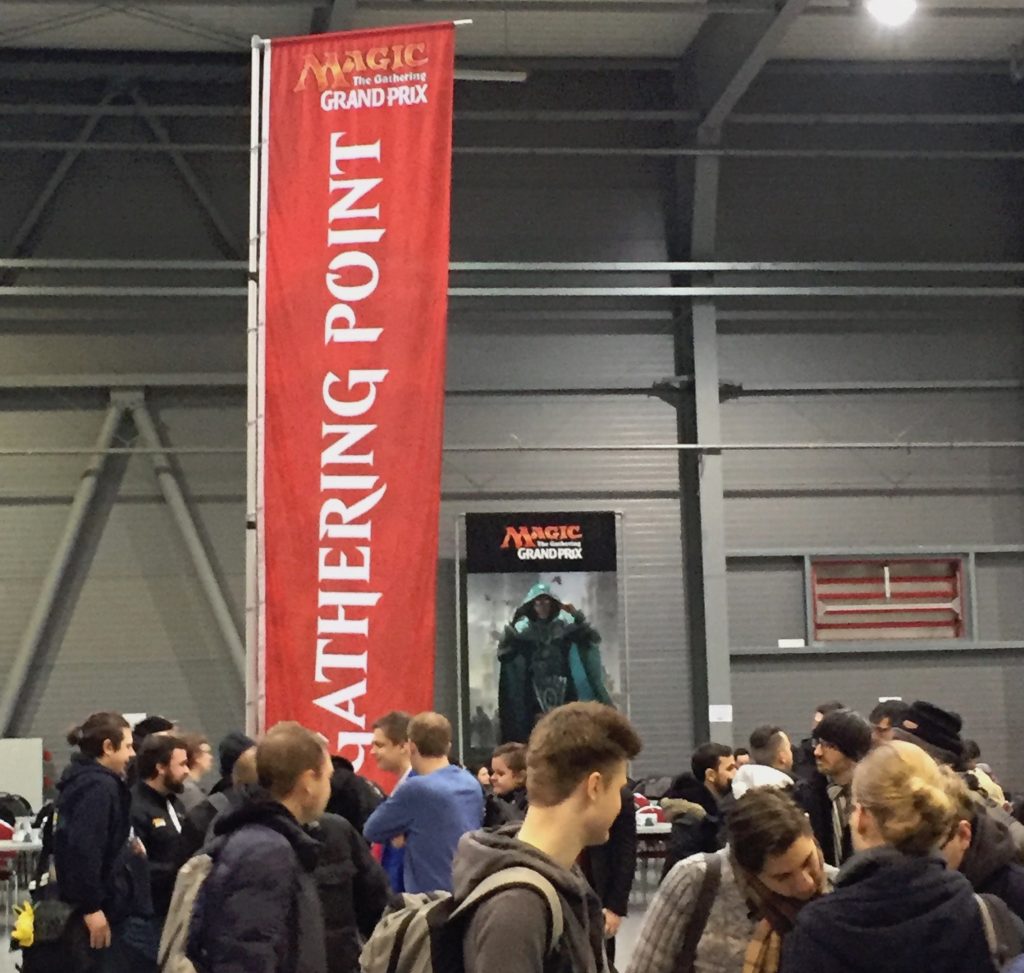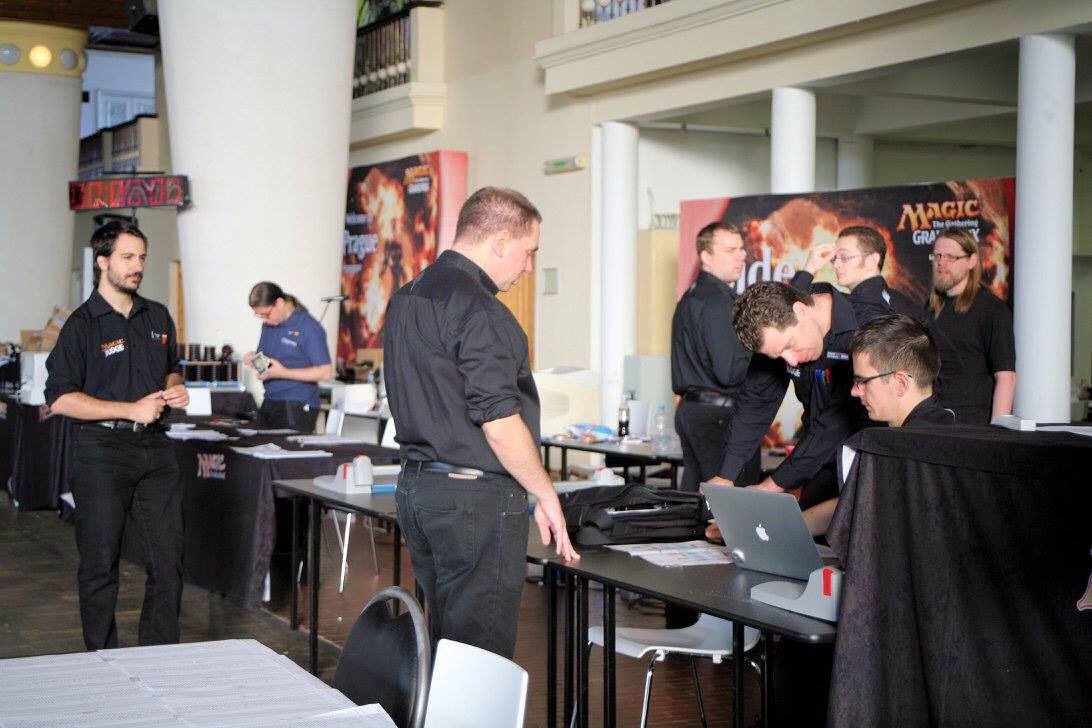Sunday Side Event Management – SE Manager (During the Event, pt1)
CIAO to everybody,
Our special guest and processes and organization expert, Ivan Petkovic, continues his series about how to manage *Side events at Grand Prix*.
Today’s article is about Side Event Manager’s responsibilities during the GP.
Happy reading!
Hi, everyone!
In the previous article, we took a look what Side Event Manager needs to do before the event. In the first article, I gave an overview of different roles, their goals, and major interactions. In today’s article, we’ll look at first part of major activities during the day. There will be part two and three for easier reading.
During the Day – Start of the shift meeting
Beginning of the day can be a bit chaotic since people need time to get into the working mode. In Europe shifts usually starts between 8:00 and 9:00, with first event (usually the biggest one) starting as early as 8:30.
In order to make the start of the day as easy for the SE Manager as possible, judges should be around the SE Stage at the beginning of your shift and on time so the SE Manager can introduce them to the schedule and assignments. SE Manager should have all materials ready (like a copy of the schedule for every judge) at latest 10 minutes before the start of the early shift. A good practice is to have the materials prepared the evening before. Once judges start coming, they will probably want to greet the SE Manager and might have some questions to ask.
So, what does the SE Manager usually say?
- Welcomes everyone & introduce yourself
- Introduces other managerial roles like ODE Manager, Floor Manager, Break Manager
- Introduces any special team like Kickstart team
- Introduces the HJs (so that other judges can recognise them)
- Emphasises the goals, like starting every event on time (which is one of best ways to keep high levels of customer service)
- Gives any information specific to the day that everyone should be aware of (e.g. if any part of the venue is restricted, for the later shift if any event needs paying attention to…)
- Gives assignments that are not on the schedule (e.g. for judges whose event starts in a couple of hours)
This meeting should ideally last 5 to 10 minutes but plan 20 minutes for it. The meeting is also repeated for all shifts.
During the Day – Managing breaks
SE Manager can decide if he wants to delegate the task of making the break schedule to a Break Manager or he will manage the breaks himself. He is ultimately responsible that all judges have their breaks. I want to stress how important it is that the SE Manager makes sure the breaks are happening. When things get hectic, following up on breaks can be easily forgotten. Also, having fewer people on the floor could result in worse floor coverage. But don’t forget that leadership is about taking care of people who are part of your team. And to have happy and healthy judges, they need their breaks.
For best practices how to organise breaks, please take a look at “Breaks Manager” role description.
During the day – Managing the Floor
SE Manager can decide if he wants to delegate the task of managing the floor to a Floor Manager or he will manage the floor himself. He is ultimately responsible that all events have their space.
For best practices how to organise floor, please take a look at “Floor Manager” role description.
During the day – Kickstarting the events
One of the most important things from customer service and TO perspective is to start events on time. Recently I was introduced to a concept of Kickstart team by Jurgen. The basic idea behind this team is to make sure the event has everything it needs to start on scheduled time. That usually includes:
- Finding space for the event (information is provided by Floor Manager)
- Finding the pairing board (and organising result boxes and signs)
- Printing and posting seat all / pairings for first round
- Printing general paperwork for the event (e.g. Round __ ends at __)
- Preparing limited product for limited events
- Preparing land station(s) for limited events
- Move the gathering point banner (if any)
- Clean tables and fix chairs
- Help to distribute product and goodies (if any)
- Help to collect decklists (if any)
Quite often the Kickstart team can serve as Help / Flex team for quickly executable tasks (or if they have people to spare for longer ones). Be careful not to have your Kickstart team doing various tasks and not being able to start the scheduled event.
During the day – HJ briefing
If Kickstart team is not being used, then each HJ needs to prepare everything for their event and it is the responsibility of the SE manager to brief the HJs.
Also, there are some additional items that HJs should be briefed about no matter if the Kickstart team is used or not:
- Get to know their SK (it is good if SKs have a paper with list of events they are taking care of printed and glued on the back of their laptops)
- Find starting table number and number of players (from Floor Manager)
- Find if the Kickstart team has prepared everything (tables, product, pairing board…)
- Have a short briefing with their judges if applicable
This is the end of part one of “During the day” activities. We took a look into Starting a shift, Managing breaks, and Managing floor, as well as activities regarding starting a new scheduled event. In the next article, we’ll take a look at other major activities.
Stay well, stay tuned!
I hope you enjoyed this article, and I’m looking forward to reading your comments.
If you want to add a comment and discuss this article in the Judge forums, click HERE.
All comments, feedback and advice are very welcome 🙂



